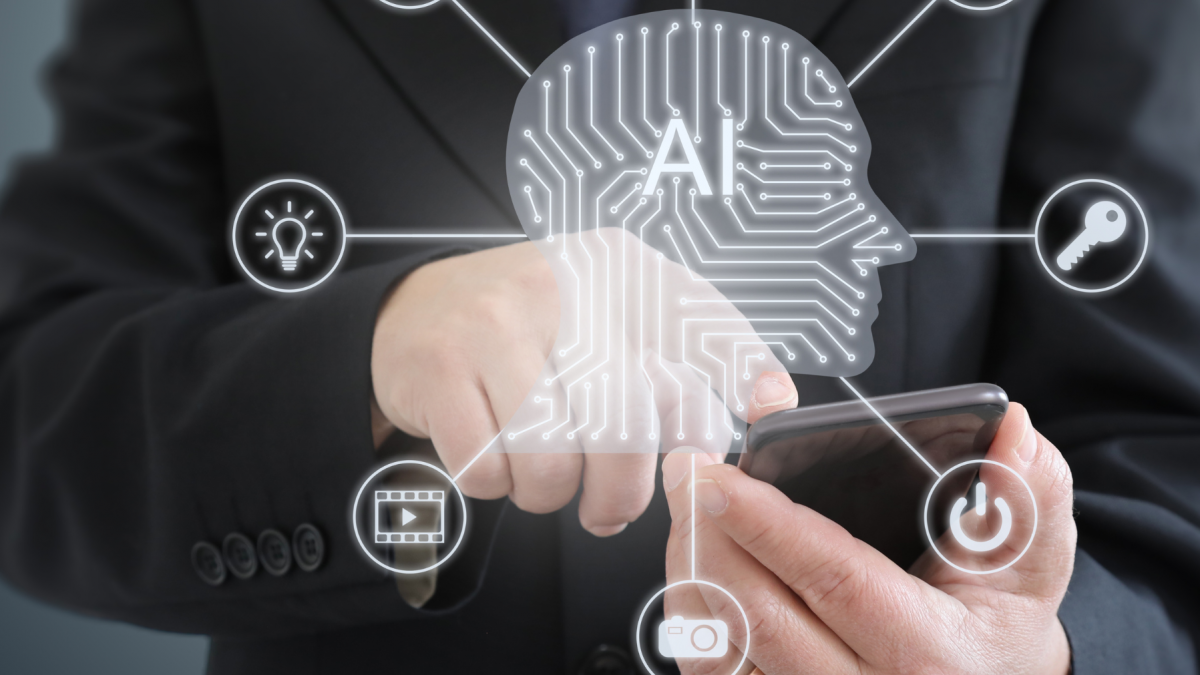
Financial Management: Direct vs. Indirect Costs – Understanding the Building Blocks of Cost Management
September 30, 2024Technology and Innovation: Exploring the Latest Mobile Technology Trends


The Ever-Evolving World of Mobile Technology
In the digital age, mobile technology has become a cornerstone of innovation, influencing nearly every aspect of our daily lives. From how we communicate to how businesses operate; the impact of mobile technology is profound and far-reaching. As mobile devices continue to evolve, staying ahead of the latest trends is crucial for businesses, developers, and consumers alike.
In this blog, we will explore the most significant mobile technology trends shaping the future. We’ll delve into the advancements driving these trends, their implications for various industries, and how businesses can leverage them to stay competitive and innovative in an increasingly mobile-first world.
5G Technology: Ushering in a New Era of Connectivity
5G technology is arguably the most talked-about mobile technology trend today. Promising faster data speeds, lower latency, and the ability to connect more devices simultaneously, 5G is set to revolutionize the mobile landscape.
1. The Power of 5G
-
- Speed and Efficiency: With speeds up to 100 times faster than 4G, 5G enables instant downloads, seamless streaming, and real-time data transmission. This is particularly beneficial for industries reliant on high-speed data, such as gaming, virtual reality (VR), and augmented reality (AR).
-
- Low Latency: The ultra-low latency of 5G allows for near-instantaneous communication between devices, opening the door for advancements in autonomous vehicles, remote surgeries, and smart cities.
-
- Enhanced Connectivity: 5G supports the Internet of Things (IoT) on a massive scale, allowing for the connection of billions of devices, from smart home appliances to industrial sensors, creating a more connected and efficient world.
2. Implications for Businesses
-
- Innovation in Services: Businesses can offer more sophisticated services, such as real-time analytics, AR experiences, and enhanced customer support through 5G-enabled applications.
-
- Improved Remote Work: With faster and more reliable connections, remote work becomes more efficient, allowing businesses to operate seamlessly from anywhere.
-
- Opportunities for New Industries: 5G will likely spawn entirely new industries, particularly in the realms of IoT, smart cities, and autonomous technology.
Artificial Intelligence and Machine Learning in Mobile Apps
Artificial Intelligence (AI) and Machine Learning (ML) are becoming integral to mobile app development, enhancing functionality, personalization, and user experience.
1. AI and ML Capabilities
-
- Personalization: AI-driven algorithms analyze user behavior and preferences to deliver personalized content, recommendations, and experiences. For example, streaming services like Netflix and Spotify use AI to curate content tailored to individual tastes.
-
- Enhanced Security: AI and ML are improving mobile security through advanced authentication methods, such as facial recognition and biometric scanning, as well as by identifying and responding to threats in real time.
-
- Automated Processes: AI-powered chatbots and virtual assistants are streamlining customer service by handling inquiries and tasks without human intervention, providing faster and more efficient service.
2. Implications for Businesses
-
- Competitive Advantage: Businesses that leverage AI and ML in their mobile apps can offer superior, personalized user experiences, setting themselves apart from competitors.
-
- Cost Reduction: Automation through AI reduces the need for manual intervention, lowering operational costs and increasing efficiency.
-
- Data-Driven Decision Making: AI and ML provide businesses with valuable insights from user data, enabling more informed decision-making and targeted marketing strategies.
Augmented Reality (AR) and Virtual Reality (VR): Expanding the Mobile Experience
AR and VR are transforming how users interact with mobile devices, creating immersive experiences that blur the lines between the digital and physical worlds.
1. AR and VR Applications
-
- Gaming and Entertainment: AR and VR are revolutionizing mobile gaming, offering immersive environments and interactive experiences that were once only possible on dedicated gaming systems. For instance, AR games like Pokémon GO overlay digital elements onto the real world, while VR games immerse users in fully virtual environments.
-
- Retail and E-Commerce: Retailers are using AR to allow customers to visualize products in their own space before making a purchase, such as trying on clothes virtually or seeing how furniture would look in their home.
-
- Education and Training: AR and VR are being utilized in education and professional training, providing hands-on learning experiences in a safe and controlled environment. Medical students, for example, can practice surgeries in VR before operating on real patients.
2. Implications for Businesses
-
- Enhanced Customer Engagement: AR and VR create engaging and memorable experiences that can differentiate a brand and foster customer loyalty.
-
- New Revenue Streams: Businesses can monetize AR and VR content, offering premium experiences or in-app purchases within these immersive environments.
-
- Improved Product Visualization: AR allows customers to interact with products in a more tangible way, reducing the gap between online and in-store shopping experiences.
Mobile Payment Innovations: The Rise of Digital Wallets and Cryptocurrency
Mobile payments have evolved beyond simple transactions, with digital wallets and cryptocurrency gaining traction as secure, convenient, and versatile payment methods.
1. Digital Wallets
-
- Convenience and Security: Digital wallets, such as Apple Pay, Google Pay, and Samsung Pay, allow users to store payment information securely and make transactions with a simple tap. They also offer additional security features, such as biometric authentication.
-
- Integration with Other Services: Digital wallets are increasingly integrated with loyalty programs, transit systems, and peer-to-peer payment platforms, providing a comprehensive solution for managing finances on the go.
2. Cryptocurrency in Mobile Payments
-
- Decentralized Transactions: Cryptocurrencies like Bitcoin and Ethereum offer a decentralized alternative to traditional payment methods, enabling borderless transactions with lower fees.
-
- Integration with Mobile Apps: Some mobile apps are beginning to accept cryptocurrency as a payment option, catering to tech-savvy users and early adopters of blockchain technology.
3. Implications for Businesses
-
- Broadened Customer Base: Accepting digital wallets and cryptocurrency can attract customers who prefer these payment methods, expanding a business’s reach.
-
- Streamlined Transactions: Mobile payments simplify the checkout process, reducing friction and improving the overall customer experience.
-
- Security and Fraud Prevention: Advanced security features in digital wallets and blockchain technology in cryptocurrency can reduce the risk of fraud and enhance transaction security.
The Internet of Things (IoT): Connecting the Mobile World
The IoT is transforming mobile technology by connecting devices, systems, and services to create a more integrated and intelligent environment.
1. IoT Applications in Mobile Technology
-
- Smart Homes: Mobile apps allow users to control smart home devices, such as thermostats, lights, and security systems, from anywhere in the world, enhancing convenience and security.
-
- Wearable Technology: Wearables, like smartwatches and fitness trackers, are integrated with mobile devices to monitor health, track activity, and provide notifications, making them an essential part of the mobile ecosystem.
-
- Industrial IoT: In industrial settings, IoT-connected sensors and devices monitor equipment, optimize production processes, and improve maintenance schedules, all accessible via mobile devices.
2. Implications for Businesses
-
- Enhanced Customer Offerings: Businesses can develop IoT-enabled products and services that offer greater convenience, efficiency, and customization, appealing to tech-savvy consumers.
-
- Operational Efficiency: IoT allows businesses to monitor and manage operations remotely, improving efficiency, reducing downtime, and lowering costs.
-
- Data-Driven Insights: IoT generates vast amounts of data that can be analyzed to optimize operations, predict maintenance needs, and personalize customer experiences.
Conclusion: Embracing Mobile Technology for a Competitive Edge
As mobile technology continues to evolve, staying informed about the latest trends is essential for businesses, developers, and consumers alike. From the transformative power of 5G to the immersive experiences of AR and VR, these trends are shaping the future of how we interact with technology and the world around us.
By embracing these advancements, businesses can enhance customer engagement, streamline operations, and unlock new opportunities for growth. The key to success lies in staying ahead of the curve, continuously innovating, and leveraging mobile technology to drive business success in an increasingly digital world.



